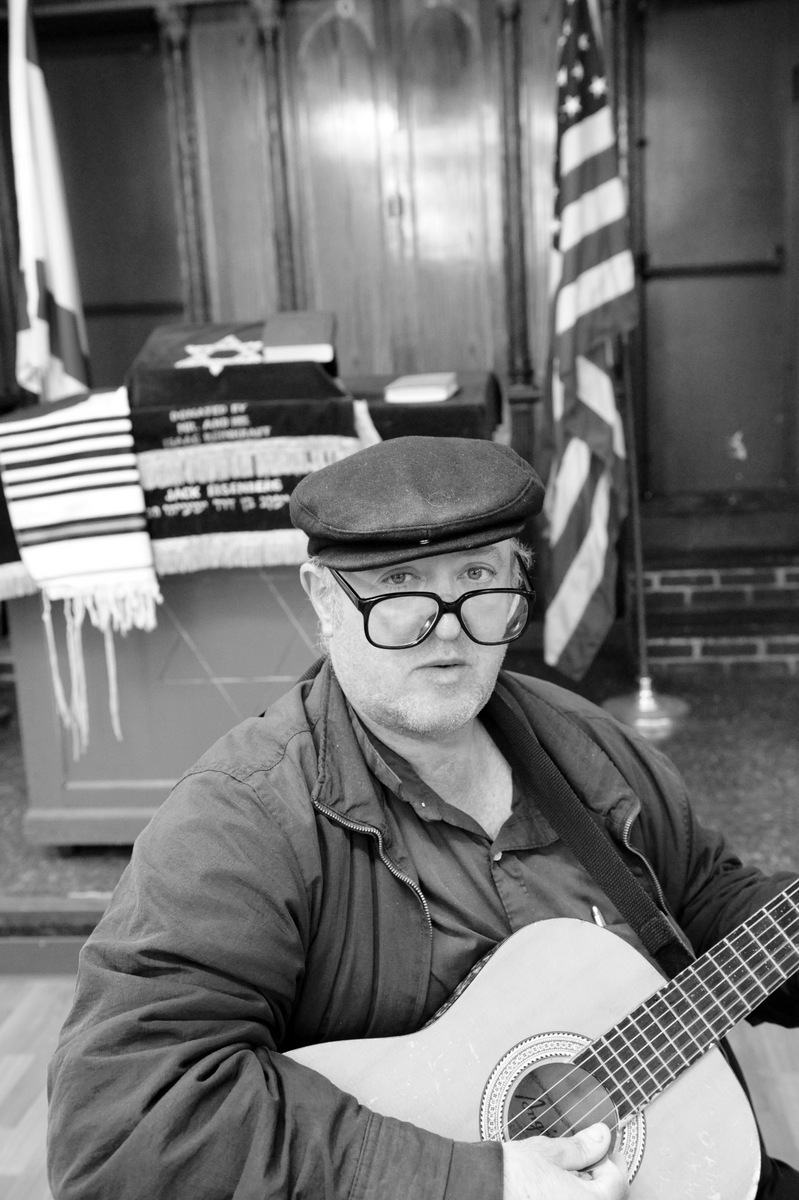Stand-Alone Lessons and Activities
Jewish Values: Tzedakah (hebrew here) - Righteousness and Charity
Tzedakah – Righteousness and Charity:
Engage students in one or more of the following activities to explore the Jewish value of Tzedakah – Righteousness and Charity:
- Have students complete Worksheet L, or explore the photograph, questions, and texts on the worksheet together through class discussion.
- View the Photograph Soup Kitchen Musician and discuss it in relation to this text from the Talmud (Gittin 61a):
“We support Jewish and non-Jewish poor; we visit Jewish and non-Jewish sick and bury Jewish and non-Jewish dead, to promote the ways of peace.”- What is meant by the phrase “to promote the ways of peace”?
- What is our obligation to the various communities of which we are a part?
- How do we decide who to give tzedakah to?
- Have students take photographs in school, at home, or in the community that reflect the value of tzedakah, or have them create and photograph a series of “tableaux”—staged scenes—that depict the value. Share and discuss.
- What was challenging about this assignment?
- How does your photograph reflect tzedakah? Is it possible to capture this value fully in a photograph?
- What is similar or different among the various photographs students took?
- What title would you give your photograph? Why?
- Have students research various social-service organizations in your community (Jewish or secular) and decide as a class where to volunteer or donate money.
PHOTO

Soup Kitchen Musician, New York, NY, 2008
Tzedakah means “righteousness” or “charity”, and it’s a fundamental part of Jewish life. We are obligated to help the needy, whether they are Jewish or not. This man is a client at a soup kitchen that’s run in a synagogue on 23rd Street in New York City. While visiting the soup kitchen, he often entertains himself and others by singing and playing the guitar.
The soup kitchen is part of Project ORE (Outreach to the Elderly), an outreach program for homeless people aged 45 and older. Believed to be the only such program aimed at Jewish homelessness, Project ORE has also come to serve people who are neither Jewish, elderly, nor homeless; however, most of the participants do fit into at least two of these categories. Project ORE describes itself as “a comprehensive program that sees a homeless person not as just a cup to fill, but as a member of our human family, deserving of opportunity and dignity.”
Sample Texts:
, – : ’ , . , : , . , : , . , - ; - .
When you reap your harvest in your field, and have forgotten a sheaf in the field, you shall not go back and get it; it shall be for the stranger, the fatherless and the widow; that the Eternal your G-d may bless you in all the work of your hands. When you beat your olive tree, you shall not go over the boughs again; it shall be for the stranger, the fatherless, and the widow. When you gather the grapes of your vineyard, you shall not glean it afterward; it shall be for the stranger, the fatherless, and the widow. You shall remember that you were a slave in the land of Egypt; therefore I command you to do this.
– Deuteronomy (Devarim) 24:19-22
, : - , .
It is to share your bread with the hungry, and to take the wretched poor into your home; when you see the naked, to clothe him, and not to ignore your own kin.
– Isaiah (Yeshayahu) 58:7
If each one sweeps before his own door, the whole street is clean.
– Yiddish saying
, ‘; , .
‘ ; , -.
-, ; , .
Sing forth, O you righteous, to the Lord; it is fit that the upright acclaim Him. Praise the Lord with the lyre; with the ten-stringed harp sing to Him; sing Him a new song; play sweetly with shouts of joy.
– Psalms (Tehilim) 33:1-3

